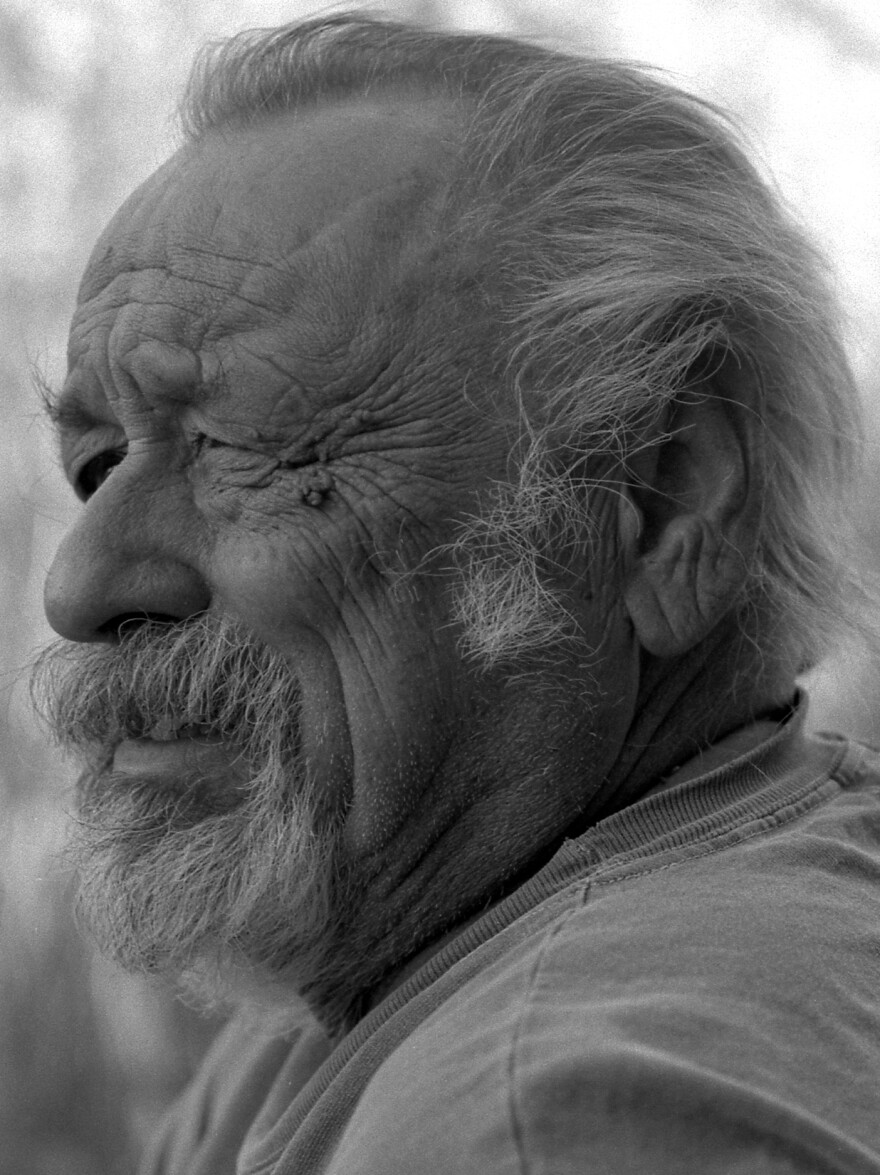Two years have gone by since I first suggested to President Obama that he create a new Cabinet post, and appoint distinguished fiction writer Jim Harrison as secretary for quality of life. The president still has not responded to my suggestion, and meanwhile Harrison has gone on to publish his latest book of novellas, which deepens and broadens his already openhearted and smart-minded sense of the way we live now, and what we might do to improve it.
It may be that our president, otherwise skilled in every way, has a blind eye when it comes to the novella form. I hope not. As someone who loves to compose novellas — which we might say are to novels as the sonata is to the full weight of the symphony — I've been counting the productions by Harrison, the reigning master of the form. With the publication of this new pair of pieces in this blooming good but intermediate form, it now comes to 17 for him, in six volumes over the years. Yours truly, lagging way behind him with only half a dozen, salutes Harrison — and continues to hope for his appointment to Cabinet status.
I have to say that Harrison has been hard put to better his personal best, "Legends of the Fall" (which came out in 1979), an epic in under a hundred pages about 20th century western American life. But with the lead piece in this new book, the autumnal novella he calls "The Land of Unlikeness," he comes quite close. "Legends" gave us the war-torn life spans of two generations of a larger-than-life Montana family, their land and their country, their loves and desires, the politics and history that enfolded them. All of this stretched out to fill the space between its boundary lines like an inter-mountain range of peaks and valleys. The new novella is much smaller in scale, giving us two weeks rather than two generations of time and focusing mainly on one character rather than a family-sized cast. But it's no less intense, as it enriches and enlarges an emotion-charged period in the life of Clive, a divorced Midwestern painter-turned-critic. Estranged from much of his family, Clive has returned from his usual Eastern haunts to his childhood home in rural northern Michigan to keep company with his aging mother, an ardent bird-watcher and churchgoer.

Clive longs for company and cohesion in his dessicated post-painting, post-married life. But he discovers almost immediately that he has wildly underestimated the power of the home place and the Proustian sense of "how memories reside in the landscape and arise when you revisit an area." Mooning over Laurette, his first girlfriend — long divorced herself, and living nearby in her old family farmhouse with a flirtatious female companion — Clive takes up painting again in order to re-create the grandest erotic encounter of his early manhood.
There's a lot more virtual eros in the companion novella, the title piece Harrison calls "The River Swimmer." The main character, a Midwestern boy named Thad, is in years not yet a man, but in experience triumphantly erotic. He swims great lakes and rivers, has visions of water babies swimming around him beneath the surface, and becomes involved with beautiful, attractive and willing girls his own age — with, as it happens, overbearing and successful fathers who sometimes try to kill him, and sometimes nearly succeed. In his outsized — almost cartoonlike — philosophical ambition, Thad declares "I just want to feel at home on earth ..." He already feels quite at home in water, which makes up a large part of our planet's surface, so when he strives to achieve his goal of feeling at home — not unlike that longing of Clive, his much more mature companion in this volume — he seems to have a good chance. No fathers wielding tire irons or tempting him with a life of luxury seem capable of deterring him much from his goal.
A boy with hopes as vast as oceans, a mature man entering into the solemnity of wholeness in a narrow range of life: together they make up what Tom Wolfe once announced — and failed to produce — as "a man in full."
What does the male version of quality of life really mean? Something like this, something like this. And female readers who don't give over some time to studying Harrison's version of it will be as foolish as the men.
Copyright 2023 NPR. To see more, visit https://www.npr.org.




